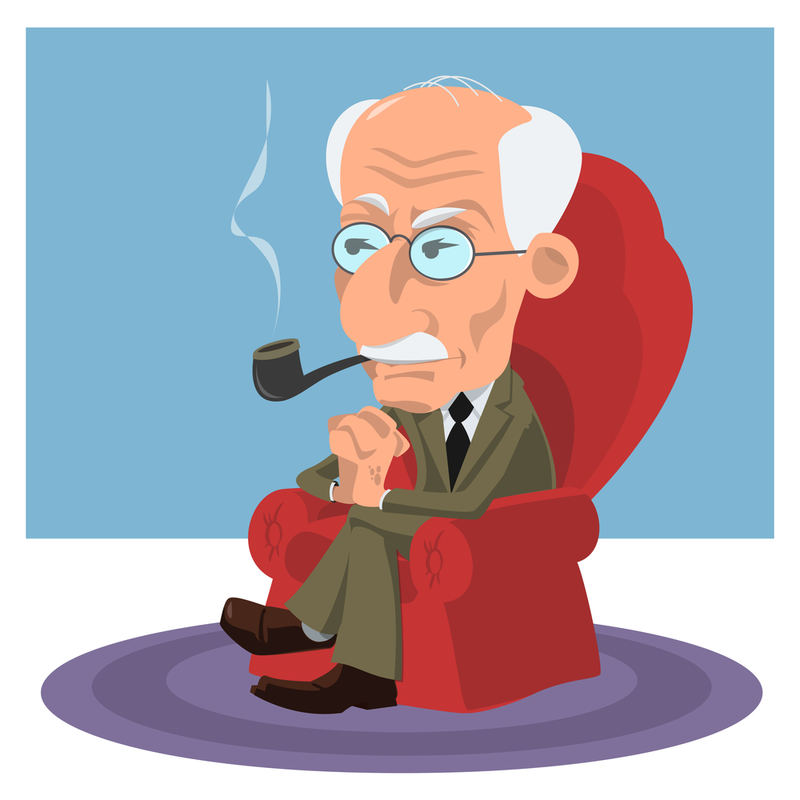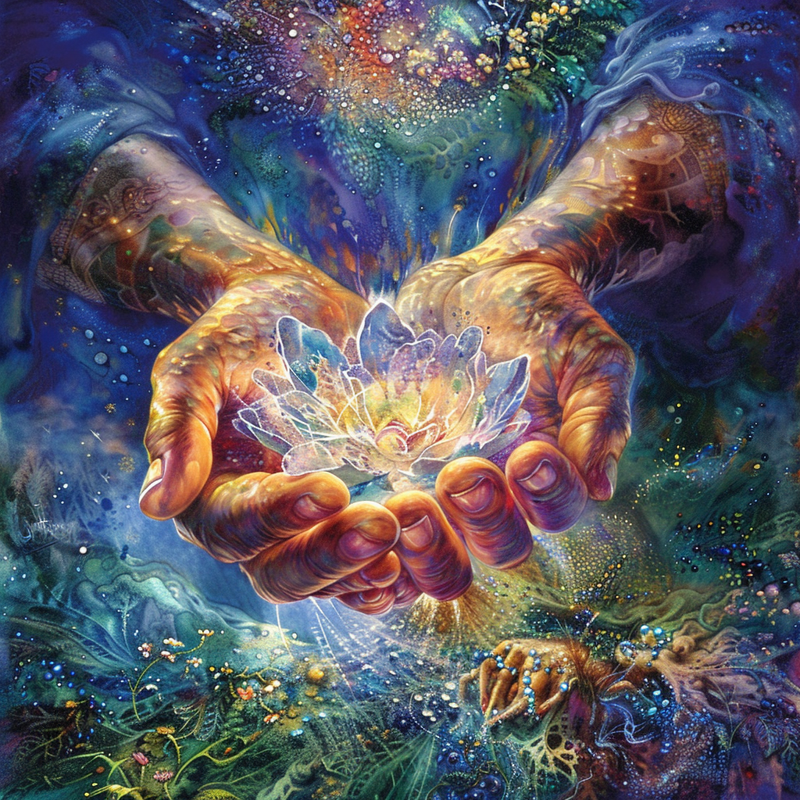Not Just Sadness. Decomposing Depression.
I often hear clients (and people in general) say, “I don’t want to discuss this subject, because I don’t want to be sad and get depressed.”
Depression is indeed accompanied with sadness, so connecting depression with sadness is common. But so is confusing these two conditions.
Being sad isn’t the same as being depressed. Sadness is a normal reaction to adverse situations. It develops when expected gratification is unavailable because of a separation from or loss of something important to us. We process sadness by means of sorrow and letting go.
Depression is a more complex condition that has other defining factors. In addition to unremitting sadness, depression is defined by low mood, apathy, lack of joy (anhedonia), and inability to concentrate and stay focused. The mind seems to be taken by something else. Corpus Hippocraticum, the classic work published between 500 and 400y BC and attributed to Hippocrates, among other authors, serves a base for development of modern medicine and includes one of the first attempts to describe depression as a medical condition. It places fear above sadness as a psychotic symptom of depression, thus postulating that fear can be a more significant factor in depression than sadness (9).
Various researchers exploring sadness, among them John Bowlby, the creator of attachment theory, have concluded that sadness often appears as a reaction to some forms of loss “of a loved person or else of familiar and loved places, or of social roles” (Bowlby, 1980). Depression can also be regarded as closely related to loss, both past and present, and to fear that this loss will occur again. Bowlby described depression as a “real or feared loss of the parent figure, either temporary or permanent,” and believed vulnerability to depression derived from these early insecure attachments and experience of early loss or abandonment.
When sad, we process sadness by means of sorrow and grieving in order to accept and let go of the things we cannot change. Grief tends to come in waves, in between pain of reestablishing connection with what one has lost. In contrast, depression is unyielding and the sadness might not diminish. In this way, depression can be seen as the antithesis of grief. As Nancy McWilliams says, “people who grieve normally tend not to get depressed, even though they can be overwhelmingly sad during the period that follows bereavement or loss” (7).
But why does this never-ending sorrow occur in depression and not in processable sadness that we all occasionally experience? The answer might lie in inhibited anger.
The major role of anger in depression has been long known to psychoanalytic researchers and clinicians. In his classic work Mourning and Melancholia, Sigmund Freud, the founding father of psychoanalysis, a precursor to all modern therapies, viewed depression “as hate turned upon the self after the loss of an important love object” (1). His close associate Karl Abraham noted a propensity towards hatred in patients with depression based on temperament or early experience. The authors speculated two things: 1) that the experience of premature loss creates vulnerability to depression, and 2) that depression results from anger turned inward in response to loss.
The melancholic state that Freud was exploring exhibited lost connections to something important (which could be a loved one, one’s deteriorating health, etc.) to the extent that the depressed (or melancholic) individuals became so identified with this lost object that they kept it firmly within themselves. At the same time, they were unable to connect with it to establish meaningful connection or part from it and grieve its loss. Sadness became inseparable from their condition. However, whereas in sadness one knows what they lost, in a depressive state the loss is often indiscernible and can’t be addressed consciously; one just feels that they lost something extremely important. Losing connection to this important “something” or “someone” becomes interpreted by the individual as their own signs of inadequacy, unlovability, or damage. They feel rejected, abandoned, and angry toward themselves in the form of shame, self-criticism, and guilt that their “badness” might have driven this something or someone away from their life, and thus, they feel inherently corrupt.
There is numerous further research connecting depression with anger.
Edith Jacobson (1954, 1971, 1975) theorized that a “lack of parental acceptance and or emotional understanding could negatively affect a child’s self-esteem, leading to aggressive feelings toward the parents and subsequent guilt. The aggression toward the parent could also be turned toward the self as a defensive strategy to protect the loved one and to prevent the self from enacting hostile impulses against the parent” (Busch et al.).
Friedman, A. S. (1970) found that individuals diagnosed with depression scaled higher on the Resentment subscale of the Buss-Durkee Inventory than non-depressed people. Resentment is defined here as “repressing the experience of the hostile affect from consciousness” (4). Subjects reported significantly less verbal open hostility but significantly more resentment. Corroborating these results Becker & Lesiak (1977) found that in clinic out-patients, severity of depression correlated with covert hostility, including guilt, resentment, irritability, and suspicion, but not with overt hostility.
In another study of Friedman’s colleagues, depressive individuals used such inwardly directed words as “bitter,” “frustrated,” and “sulky” to describe their feelings, but reported less overtly hostile-aggressive feelings, such as “rebellious,” “rude,” “violent,” and “furious.”
In earlier research by Friedman et al. (10), people were asked if it is ever right to be angry. Hospitalized depressed patients answered “yes” significantly less often than non-depressed control subjects. This suggests difficulty with acceptance and expression of anger or aggression at the time of depression. Riley et al. (1989) concluded in their study that “the results […] generally support the hypothesis that depression is related to an inhibition in anger expression. The depressed group reported higher levels of anger suppression than either the normal or PTSD groups” (11).
In another study by Kellner, R., Hernandez, J., & Pathak, D. (1992), 100 participants diagnosed with depression were given an extensive 150-question questionnaire about their condition, including anger. In all four groups, depression predicted inhibited anger for both sexes.
Improvement in all domains of inwardly directed hostility, including wishes to deliver punishment and self-punishment, has been reported with the improvement of depression (Blackburn et al. 1979; Mayo 1978; Friedman 1970).
Another interesting study, conducted by Goldman & Haaga (1995), connected both anger and fear in depression. They reported that, in comparison to non-depressed subjects, depressed subjects express more anger towards close family members, including their spouses and children, than to other people. This finding seems plausible considering the high rates of marital conflicts in couples that include a depressed partner (Schmaling and Jacobson, 1990). Further, the fear of expressing anger to other people was highly correlated with anger suppression because of the fear of the consequences of such expression.
Allan & Gilbert (2002) demonstrated that anger suppression and control by depressed individuals is significantly higher when directed toward individuals of higher rank, while anger is diverted to those considered of lower rank. Total anger expressed is significantly lower up rank than down rank (12).
The conclusions in the above research were further corroborated by Brody et al. (1999), who demonstrated that, in comparison to the never-depressed control group, recovered depressed patients reported suppressing their anger and being afraid of expressing it because they viewed it as damaging toward other people. The authors hypothesized that anger inhibition may play a causal role in the recurrence of depression.
These findings link both anger and the fear of expressing it, causing depressed individuals to suppress their anger out of fear. Thus, the role of inhibited anger in depressive conditions seems to be crucial.
There might also be confusion when we describe sadness as opposed to anger. Castel, P.-H. (2016) indicates confusion between these notions:
“The very fact of saying “You make me sad” to somebody often expresses not so much sadness as anger and resentment. Reciprocally, we may cry out of moral loss, pain when shouting, “I hate you so much” to a loved one. From a more psychological standpoint, sadness is often consciously experienced as an inward rage barred from public display; anger, similarly, when not fully acted out, commonly reverts to grief and feelings of helplessness. The opposition of inward vs. outward feelings will often reflect socially coded constraints on the legitimacy of the public exhibition of affective states. Agitated and violent children may actually be sad, while passive or submissive women, internally consummated with rage” (2).
Many researchers such as Arieti, Bemporad and Bowlby view depression as closely related to sadness, but a sadness that cannot be “metabolized” so that the work of sorrow cannot be completed. Inhibited anger, together with fear of expressing it and lack of knowledge or positive previous experience on how to express anger constructively, might play a crucial role in hindering the process of sorrow to eventually be rid of sadness and the symptoms of depression.
Obviously, the conclusion stemming from the above research is that, when dealing with depression both on a personal and therapeutic level, we need to take into account possible presence of suppressed anger and equip ourselves or our clients with tools to deal with and express it constructively. There are numerous techniques on dealing with anger, depending on the therapeutic approach. Here, I would like to stress the suggestion of Nancy McWilliams (2011). She suggests that depressed individuals be in long term or open-ended therapy, as opposed to a pre-set number of sessions. Assuming that they have sufficient time to recognize their anger in a therapeutic environment, they will be able to address it. As McWilliams states:
“[Depressed clients] need to know that their anger at being abandoned did not destroy the [therapeutic] relationship and that their hunger did not permanently alienate the therapist… Treatments that are arbitrarily limited to a certain number of sessions may provide welcome comfort during a painful episode of clinical depression, but the time-limited experience may be ultimately assimilated unconsciously by the depressive person as another relationship that was traumatically cut short—further evidence that the patient is a failure in maintaining attachments” (7).
Recognizing inhibited anger in a depressive state, learning to express it constructively with the assistance of a therapeutic environment, and addressing the fear of losing important relationships due to anger can be salubrious strategies in helping one alleviate the symptoms of depression.
Bibliography:
1. Freud S. (1917). Mourning and Melancholia. The Standard Edition of the Complete Psychological Works of Sigmund Freud, Volume XIV (1914-1916).
2. Castel, P.-H. (2016). Loss, Bereavement, Mourning, and Melancholia: A Conceptual Sketch, in Defence of Some Psychoanalytic Views. In Sadness or Depression? (pp. 109-119).
3. Painuly, N., Sharan, P., & Mattoo, S. K. (2004). Relationship of anger and anger attacks with depression. European Archives of Psychiatry and Clinical Neuroscience, 255(4), 215–222.
4. Friedman, A. S. (1970). Hostility Factors and Clinical Improvement in Depressed Patients. Archives of General Psychiatry, 23(6), 524.
5. GOLDMAN, L., & HAAGA, D. A. F. (1995). Depression and the Experience and Expression of Anger in Marital and Other Relationships. The Journal of Nervous and Mental Disease, 183 (8), 505-509.
6. Busch FN (2009). Anger and depression. Advances in Psychiatric Treatment, 15(4):271-278.
7. McWilliams, Nancy. (2011). Psychoanalytic diagnosis: Understanding personality structure in the clinical process (2nd ed.). ISBN 978-1-60918-494-0.
8. Kellner, R., Hernandez, J., & Pathak, D. (1992). Self-Rated Inhibited Anger, Somatization and Depression. Psychotherapy and Psychosomatics, 57(3), 102–107.
9. Azzone, Paolo. Depression as a Psychoanalytic Problem. University Press of America, 2012.
10. Friedman AS, Granick S: A note on anger and aggression in old age. J Geront 18:283-285, 1963.
11.RILEY, W. T., TREIBER, F. A., & WOODS, M. G. (1989). Anger and Hostility in Depression. The Journal of Nervous and Mental Disease, 177(11), 668–674.
12. Allan, S., & Gilbert, P. (2002). Anger and anger expression in relation to perceptions of social rank, entrapment and depressive symptoms. Personality and Individual Differences, 32(3), 551–565.



